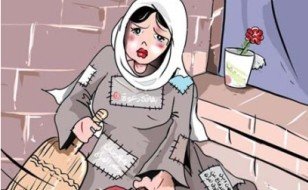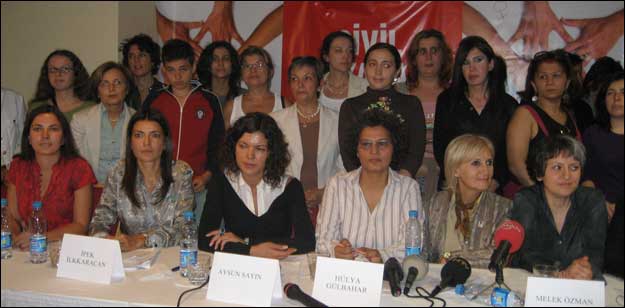In recent days, Prime Minister Recep Tayyip Erdogan has made the headlines in the debate about women's representation in politics. Asked to support women's quotas, which exist "even in Ruanda", he replied: "Do you want to be Ruanda? Go ahead!"
At the discussion, which took place at the reception of the opening of the legislative year, Erdogan claimed that women and men had equal rights and that quotas wre not fair. He added, "You cannot tell me that it exists in other places. Is there a quota in the USA? What is the quota in France?"
KA-DER calls for quota
The "Women's Quota Handbook" published by the Association for the Support and Education of (Parliamentary) Women Candidates (KA-DER) explains why a women's quota is so important. It also shows that many countries apply a quota system.
"The number of countries which quotas in the constitution, in the election law or in political parties is 98. In countries with quotas, the degree of representation by women is an average 18.4 percent."
68 women have been heads of state or prime minister worldwide
The handbook points out that a total of 68 women have been heads of state or prime ministers. At the moment, there are five women prime minister and five female heads of state. These countries are Germany, New Zealand, Bangladesh, the Sao Tome and Principe Islands, Mozambique, the Philippines, Finland, Ireland, Latvia and Liberia.
In Turkey, there has been one women prime minister, Tansu Ciller.
Women's representation in parliament always under 10 percent
According to the Turkish Institute for Statistics (TÜIK), the representation of women in the Turkish Grand Assembly has not been stable.
1935 4.5
1939 3.7
1946 1.9
1950 0.6
1954 0.7
1957 1.3
1961 0.7
1965 1.8
1969 1.1
1973 1.3
1977 0.9
1983 3.0
1987 1.3
1991 1.8
1995 2.4
1999 4.2
2002 4.4
2007 9.1
The lowest representation was in the years 1950, 1954, 1961, 1977, when representation was lower than 1 percent. Even now, with the highest representation ever (9.1 percent), there are still fewer than 10 percent female MPs.
Women hardly present in local government
Women have also not fared well in local elections. Female mayors make up 0.56 percent of all mayors in Turkey. Of the 34,477 municipal council members, 2.32 percent are women and of the 3,208 provincial council members, 1.75 percent are female.
Why is a quota necessary?
A quota is a mechanism which has been developed in order to guarantee a more egalitarian democracy. It is important how and when it is applied. The handbook calls for all political parties to apply gender quotas and for this to be written into the party statutes, as well as either the constitution or the election law.
A quota determines a threshold of representation, which, so KA-DER, should be at least 30 percent. This would mean that at any time at least 30 percent of the representatives should be female (or male).
For and against
People arguing against quotas say that they are incongruous with the equality of opportunities, that they are undemocratic (as the voters cannot choose who to vote for), and that they may allow less able candidates to bypass more able ones on the basis of gender.
Supporters of quotas argue that they allow women to achieve the equality of opportunities which is denied them in real life. They argue that an equal representation of women and men is vital so that the different assets and interests of the different genders are represented. (GG/AG)













